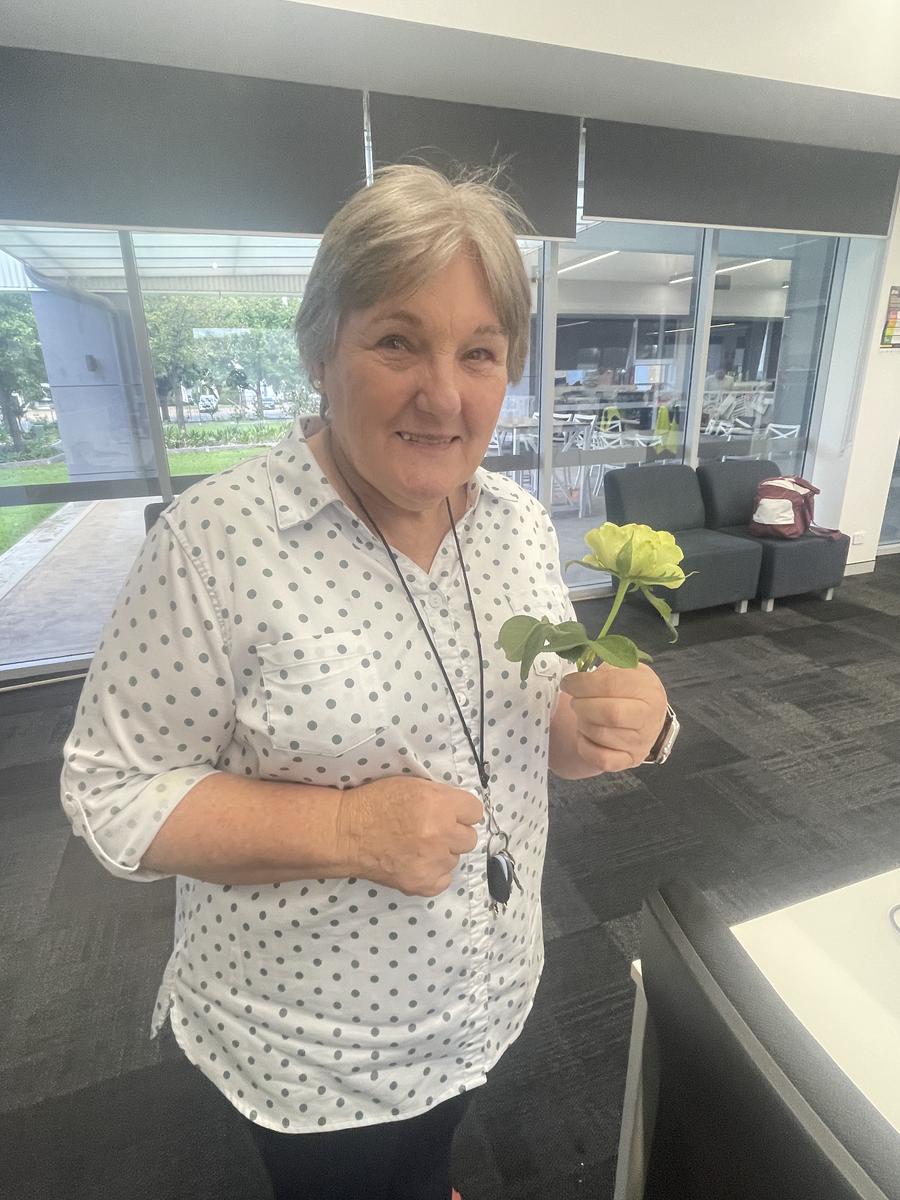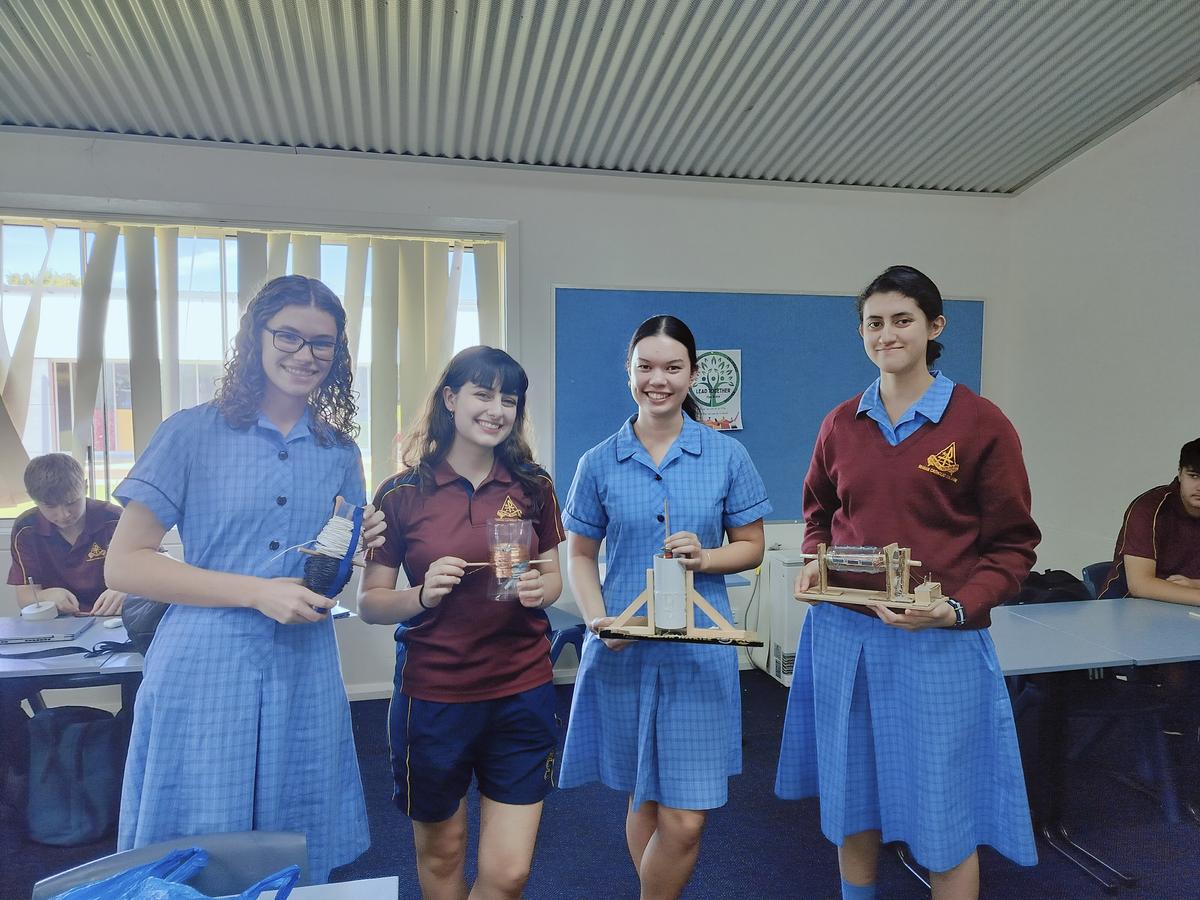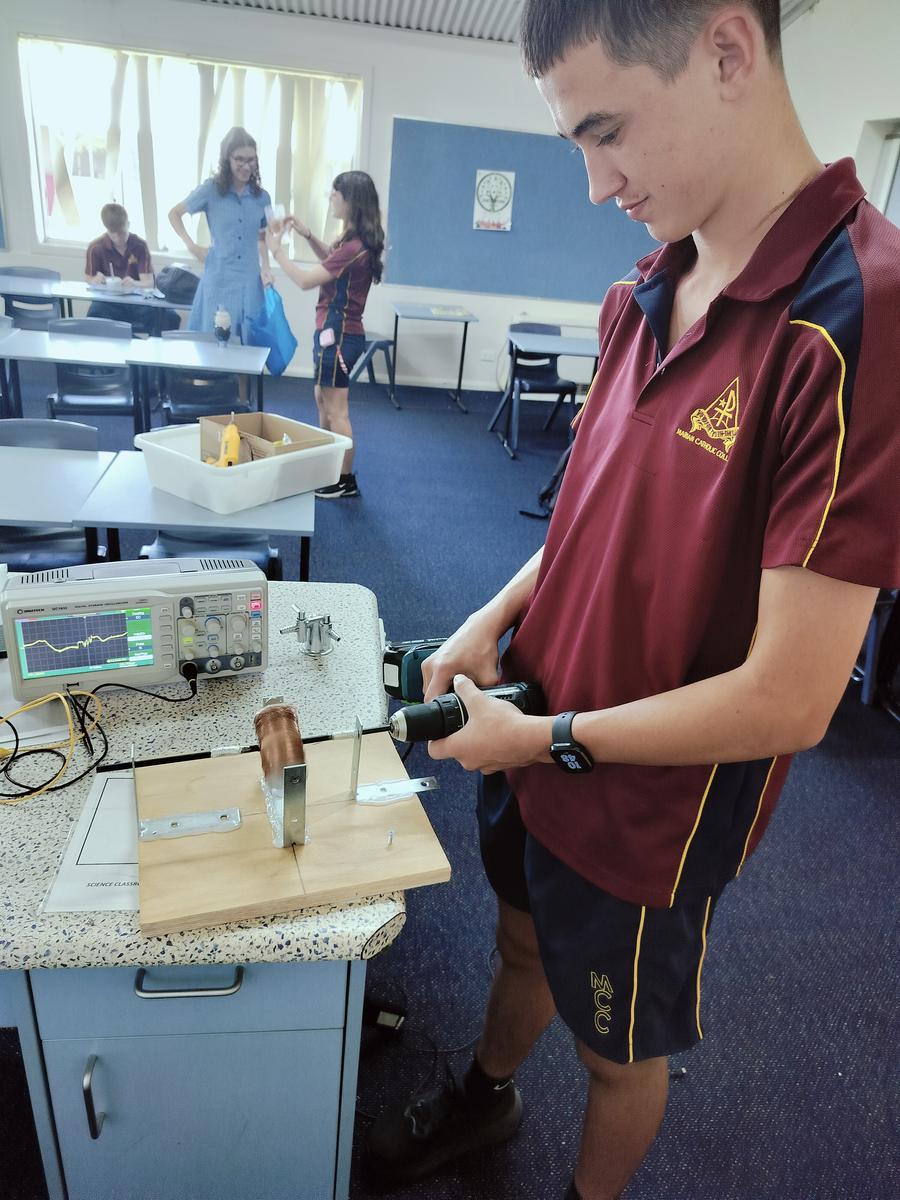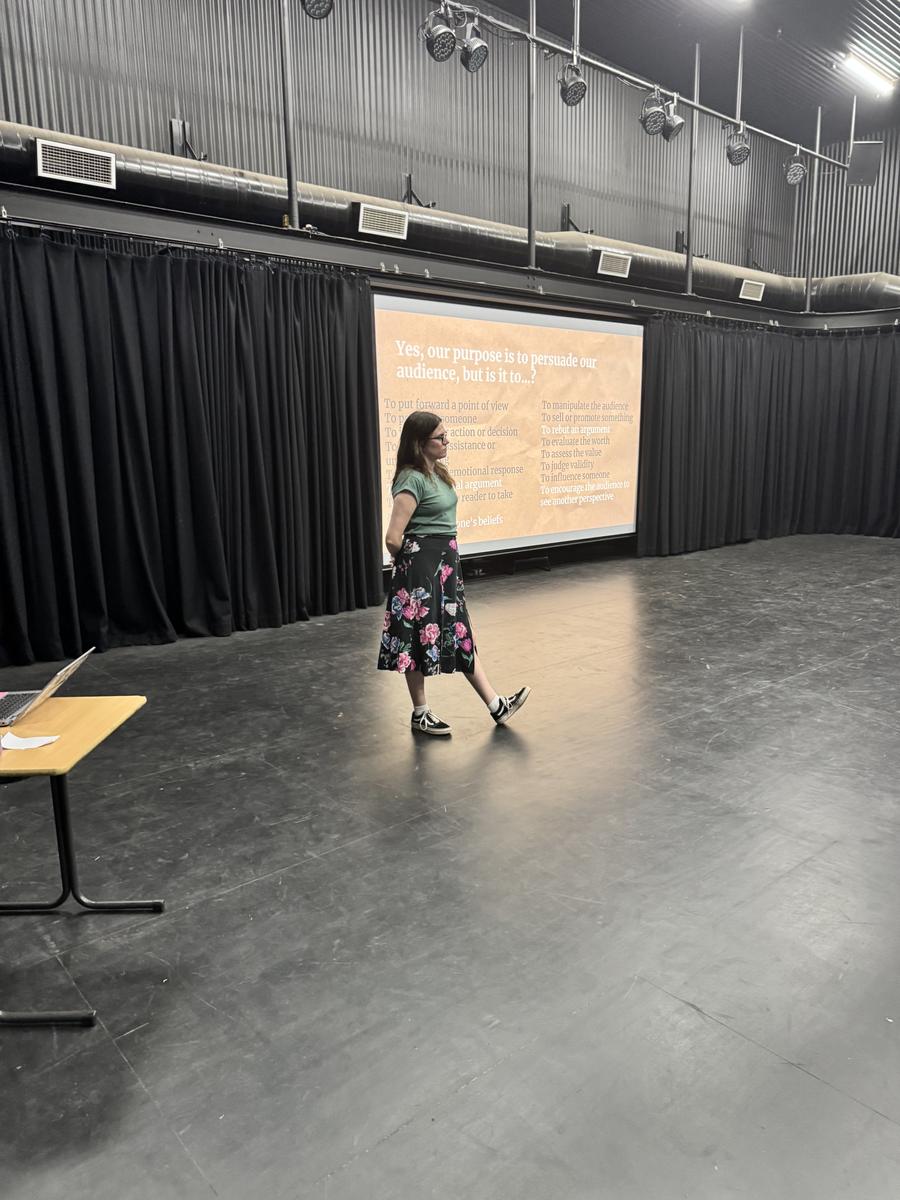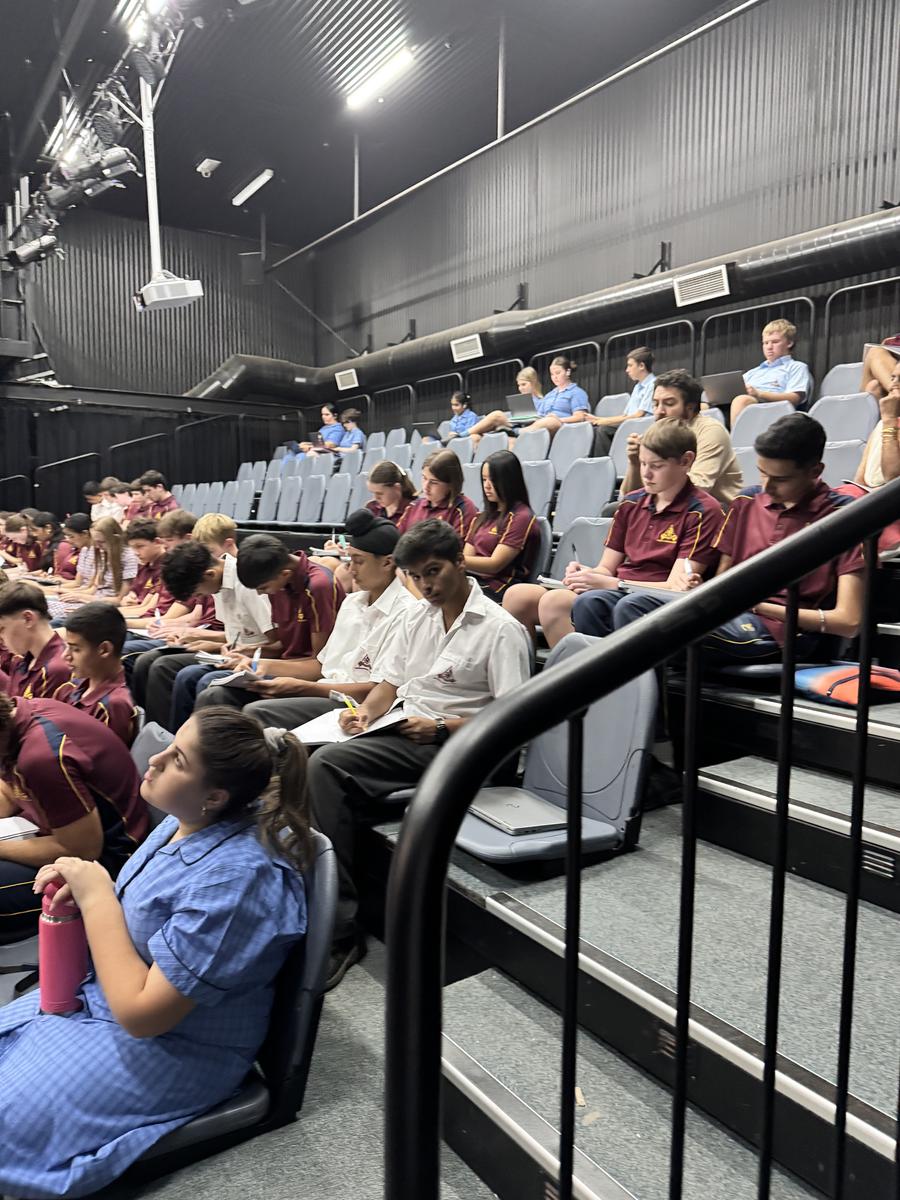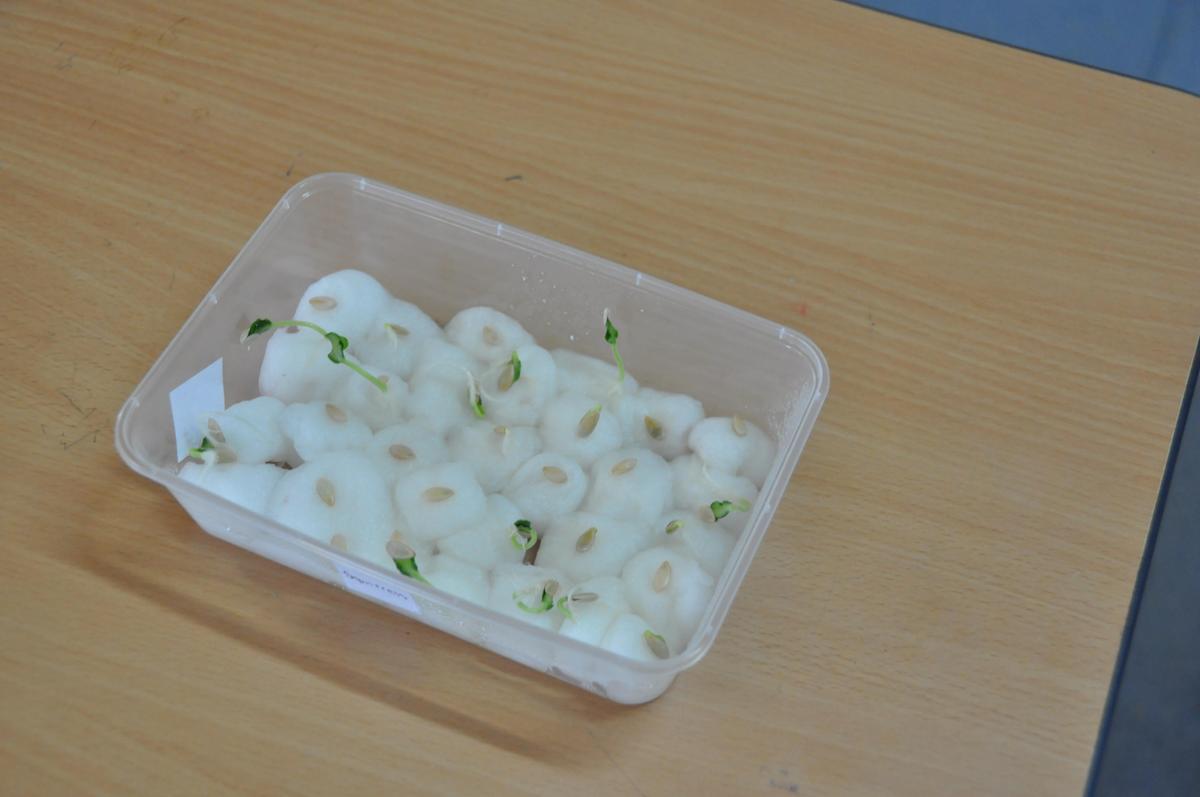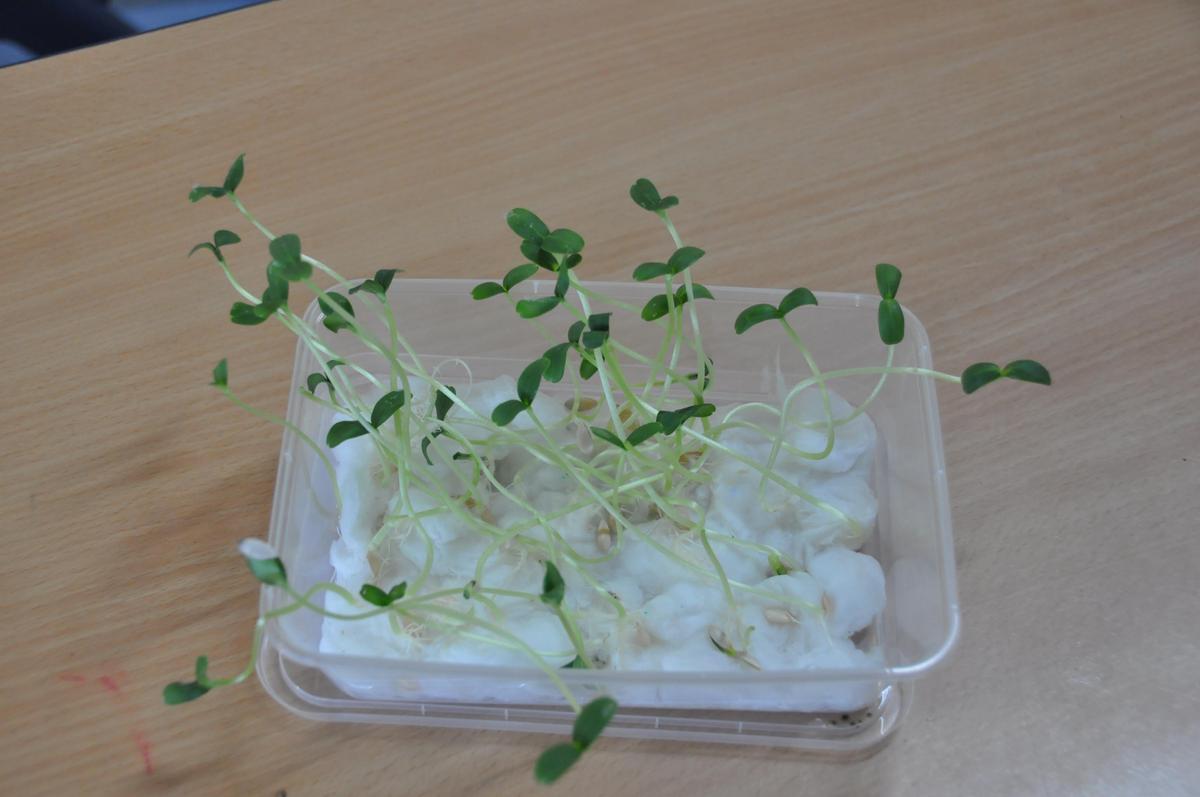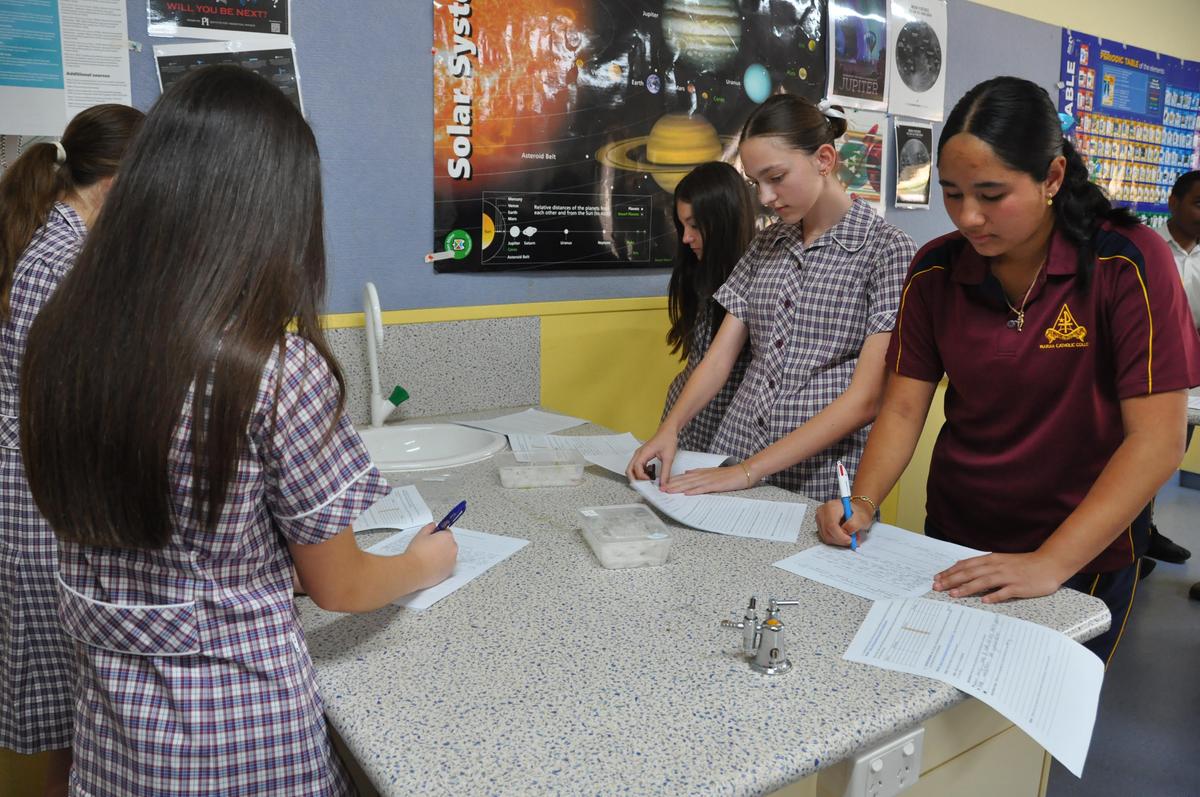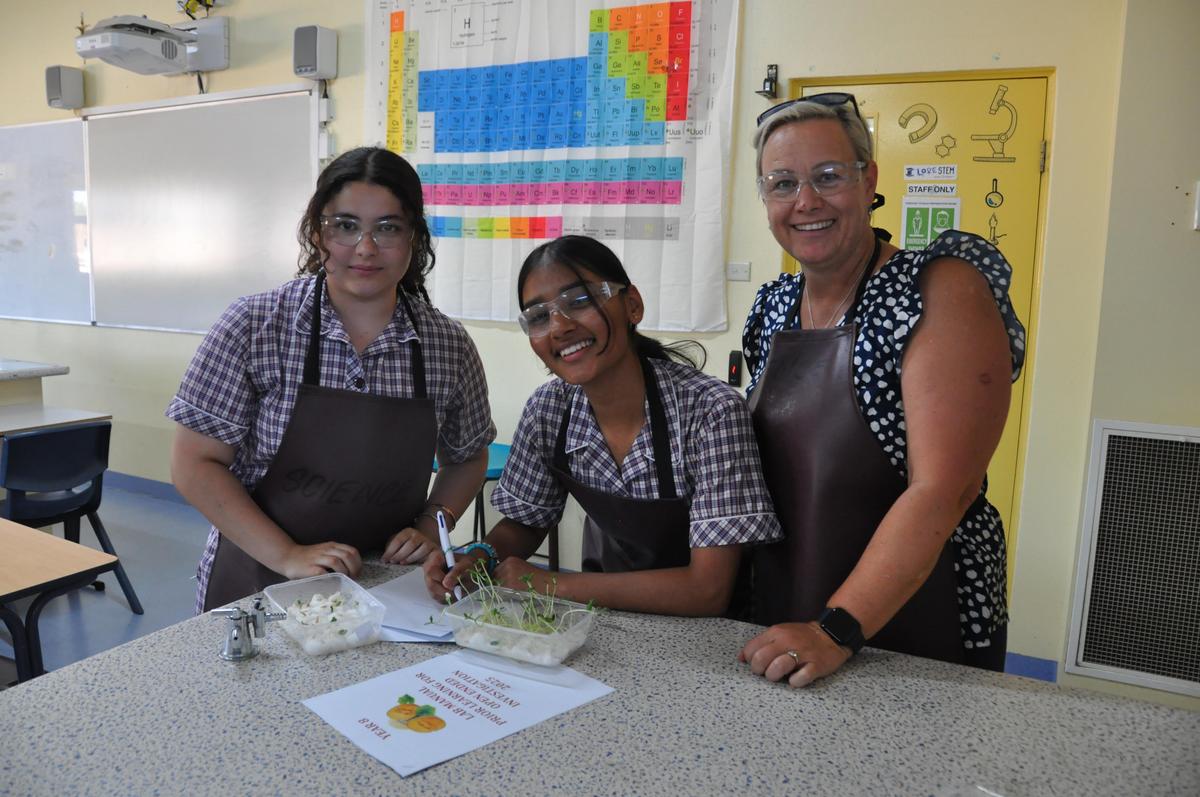Science
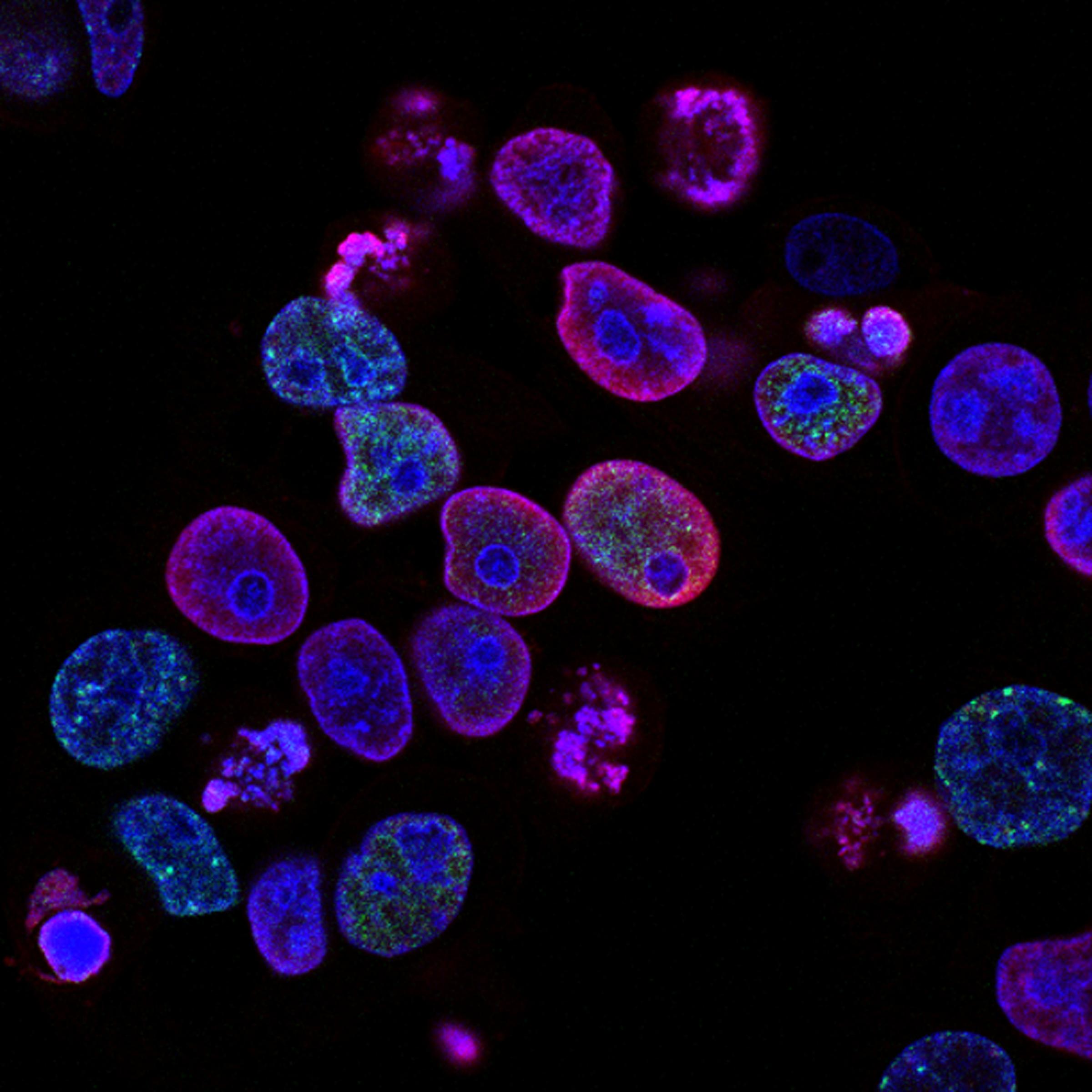
Marian Catholic College has had a focus on improving student writing skills for a few years now. As well as our own understanding of the importance of text types, the new science syllabus also has a focus on using informative, creative and persuasive writing to communicate effectively in science.
This year, our science department will focus on persuasive writing with the help of our literacy coordinator, Alison Carlile. Year 7 will present arguments for a topic in space exploration, Year 9 will present arguments on the use of renewable energy sources and Year 10 will present arguments on genetic biotechnology, all while developing the skills of writing persuasive texts. Year 8 will have the same learning opportunities next term when they present arguments for and against the use of natural resources and the effect on ecosystems.
As I was walking into the staffroom, I noticed a green rose. I have never seen a green rose before and so I discussed this with my colleagues. They followed the pied piper to the rose garden to investigate. I found myself having to persuade them that it was in fact green. Mr Symmes came to the rescue and checked the name of the rose. It is called the St Patrick’s rose….Rosa St Patrick. That did it, it was green!
Meanwhile, Year 12 Physics are excited and inspired as they build their generators, Year 12 Chemistry have been busily titrating and Year 12 Biology have been exploring genetic biotechnology and the brilliant science that is currently being developed and applied to solve global natural problems.
Year 11 Chemistry are completing their research on Allotropes, Year 11 Biology have begun their depth studies exploring enzymes and the conditions they need for Homeostasis. On Thursday the students practiced how to conduct a first-hand investigation by testing the effect that temperature has on catalase, an enzyme in our own body which breaks down toxic hydrogen peroxide to oxygen and water. Next week they will undertake their own first-hand investigations understanding other environmental factors on a specific enzyme.
Year 11 Physics are exploring energy and motion and are currently deep into momentum.
As we roll into the end of term, we encourage some serious study of the science concepts so that students can achieve and show us what they know and understand. Study techniques such as concept or mind maps, flash cards and peer questioning can improve student long term memory. It is important not to underestimate the value of study in the junior years as this contributes massively to success and ease of learning as our students move into the senior years or trades.
Year 8 Science: Investigating Rock Melon Germination with Mrs Field
Our Year 8 science students have been exploring the process of germination through an exciting hands-on research project focused on rock melon seeds. As part of their investigation, students have designed their own experiments, testing various factors that influence seed germination, such as water availability, soil type, and temperature. They have learned to form testable hypotheses, identify independent, dependent, and controlled variables, and carefully plan their methodology.
Throughout the project, students have been responsible for setting up and maintaining their experiments, recording observations, and analysing their results. This real-world research ties into the unique agricultural landscape of the Murrumbidgee Irrigation Area (MIA), helping students understand the conditions necessary for successful crop growth. By linking their findings to local farming practices, they are developing a deeper appreciation for the science behind food production.
To make learning even more engaging, students have designed competitions to predict and compare germination rates under different conditions. Finally, they will compile their findings into detailed scientific reports, developing essential skills in data interpretation and communication. This project not only strengthens their understanding of plant biology and the scientific method but also fosters critical thinking about sustainable agriculture. We look forward to seeing their final results and celebrating their achievements in scientific inquiry!
Best wishes for a lovely weekend
Esther Dumbleton (Science Leader of Learning)

